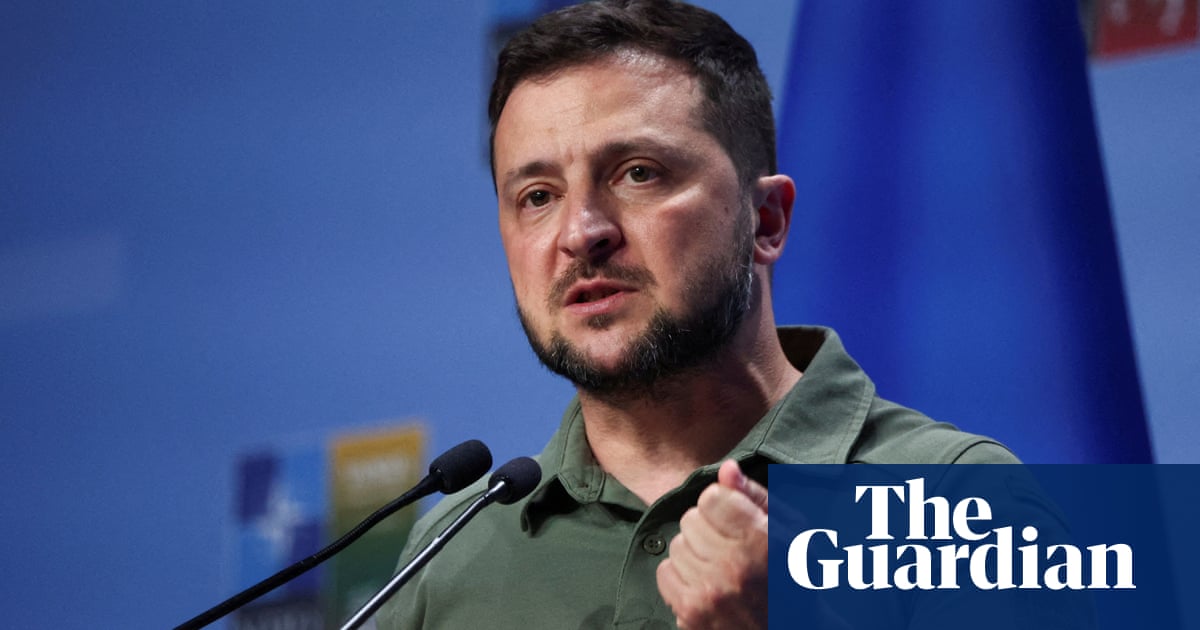World leaders flew into Washington DC on Tuesday for a two-day Nato summit where they are expected to agree enhanced military support for Ukraine against a backdrop of questions about Joe Biden’s mental sharpness.
Britain’s new prime minister, Keir Starmer, and Ukraine’s president, Volodymyr Zelenskiy, were among those arriving at the US capital amid a warning that Russia could step up missile strikes on Ukraine this week, repeating a barrage that killed at least 38 on Monday.
The summit is expected to agree a fresh package of military aid for Ukraine, including at least four additional Patriot air defence systems and progress on supplying F-16 fighters, to help Kyiv better fend off devastating Russian attacks.
On his arrival in Washington, Zelenskiy said he was “fighting for additional security guarantees for Ukraine” and described these as “weapons and finances, political support”, in a video on his Telegram channel.
A senior Nato official warned on Tuesday that there could be further Russian missile barrages on Ukraine this week to coincide with and draw headlines away from the summit. Moscow could seek to create “a split screen” of events to try to detract from decisions being made at the summit, the official said.
A children’s hospital in Kyiv was among the sites bombed on Monday. Ukraine said it was hit by a Kh-101 cruise missile. Two people were reported killed at the site and rescuers were still searching the rubble. The hospital was described as being no longer able to function.
There will be no meaningful progress on Ukraine joining Nato in Washington, although alliance members will seek to dress up the latest package of support as part of what is described as “a bridge to membership”. The summit’s final communique is expected to say Ukraine’s path to joining is “irreversible”.
The US, Germany and Italy are concerned that allowing Ukraine to join Nato while the war with Russia continues would bring the alliance into direct conflict with Moscow. Even a more limited form of what could be considered direct military intervention in support of Kyiv attracts similar concerns.
A year ago, at the last summit in Vilnius, Lithuania, Zelenskiy complained in an outburst about the lack of progress being made towards Ukrainian membership. Leaders will be anxious to avoid a row on this occasion.
Biden is due to make a speech on Tuesday evening ahead of the opening of the summit and to close proceedings with a press conference on Thursday afternoon that is expected to be a critical test of his acuity after his disastrous performance in a television debate with Donald Trump last month.
Concerns about Biden and his ability to defeat Trump hang over the summit, given Trump’s past scepticism about Nato and uncertainty about whether he would be willing to continue to supply large volumes of military aid.
Nato leaders have been emphasising that a record number of members, 23 out of 32, now meet a commitment first agreed 10 years ago to spend 2% of GDP on defence. Trump has repeatedly complained that smaller Nato countries do not “pay their dues” and this year threatened not to defend any country that was “delinquent”.
More recently, allies of Trump have argued that if elected again the Republican would demand a reorientation of Nato where European countries would be asked to increased defence spending further, while the US focuses more on China.
But such is the size of the US defence budget – $860bn, two-thirds of the total of all Nato members – that it would be difficult for European countries to replace a significant reallocation of resources from a Trump White House and to continue supporting Ukraine at the existing level of about €40bn a year.
On Monday Mike Johnson, the speaker of the House of Representatives and a leading Trump ally, said that while Republicans valued the military alliance and would stand by member countries in preventing conflict, “we also believe that Nato needs to be doing more”.
A senior Nato official said Ukraine remained on the defensive in the ongoing war, with Russia mobilising 30,000 fresh soldiers a month, allowing it to “absorb high losses” for some time. Ukraine, by contrast, was not yet able to mount a counteroffensive to take back territory lost earlier in the conflict, and the official said “it’s going to take some time to get the personnel in place” before it was able to do so.
The official indicated that the war was now expected to last into next year and beyond, with Vladimir Putin still believing time was on his side. “We all have to be prepared to continue to support Ukraine well beyond 2025,” the official said.

